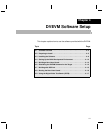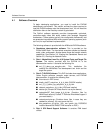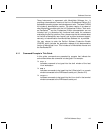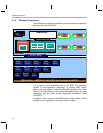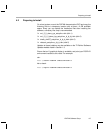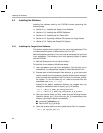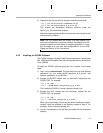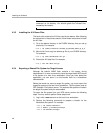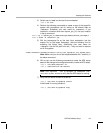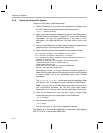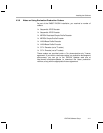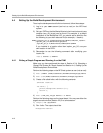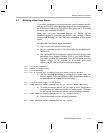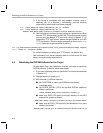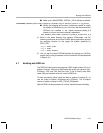
Installing the Software
4-8
Note: You can uninstall these components by using the rm -rf
command on its directory. You should ignore the uninstall files
created by the installer.
4.3.3 Installing the A/V Demo Files
The fourth disk contains the A/V files used by the demos. After following
the instructions in the previous section, follow these instructions to install
the A/V files:
1) Go to the demos directory in the DVSDK directory that you set up
previously. For example:
host $ cd /home/<useracct>/dvsdk_#_#/dvsdk_demos_#_#_#
2) Mount disk 2 and copy the data.tar.gz file to your DVSDK directory.
For example:
host $ cp /mnt/cdrom/data.tar.gz .
3) Extract the A/V data files. For example:
host $ tar zxf data.tar.gz
4.3.4 Exporting a Shared File System for Target Access
Although the board’s NAND flash contains a file system, during
development it is more convenient to have the target board NFS mount
a file system on a host Linux workstation. Once you have tested the
application, you can store it on the board’s flash for a standalone
demonstration.
Before the board can mount a target file system, you must export that
target file system on the host Linux workstation. The file system uses an
NFS (Network File System) server. The exported file system will contain
the target file system and your executables.
To export the file system from your NFS server, perform the following
steps. You only need to perform these steps once.
1) Log in with a
user account on the host Linux workstation.
2) Perform the following commands to prepare a location for the
MontaVista file system. For example:
host $ cd /home/<useracct>
host $ mkdir -p workdir/filesys
host $ cd workdir/filesys




